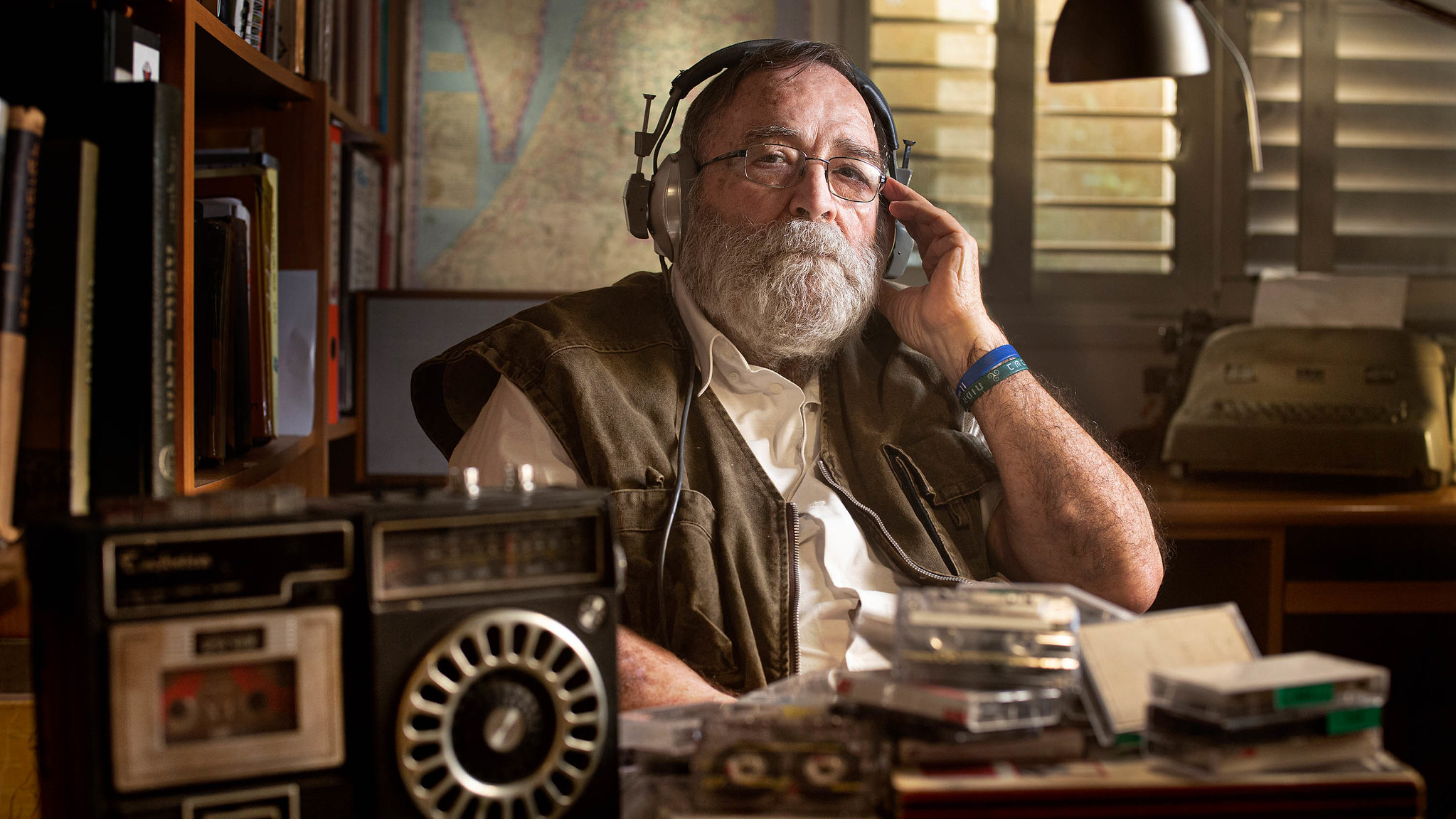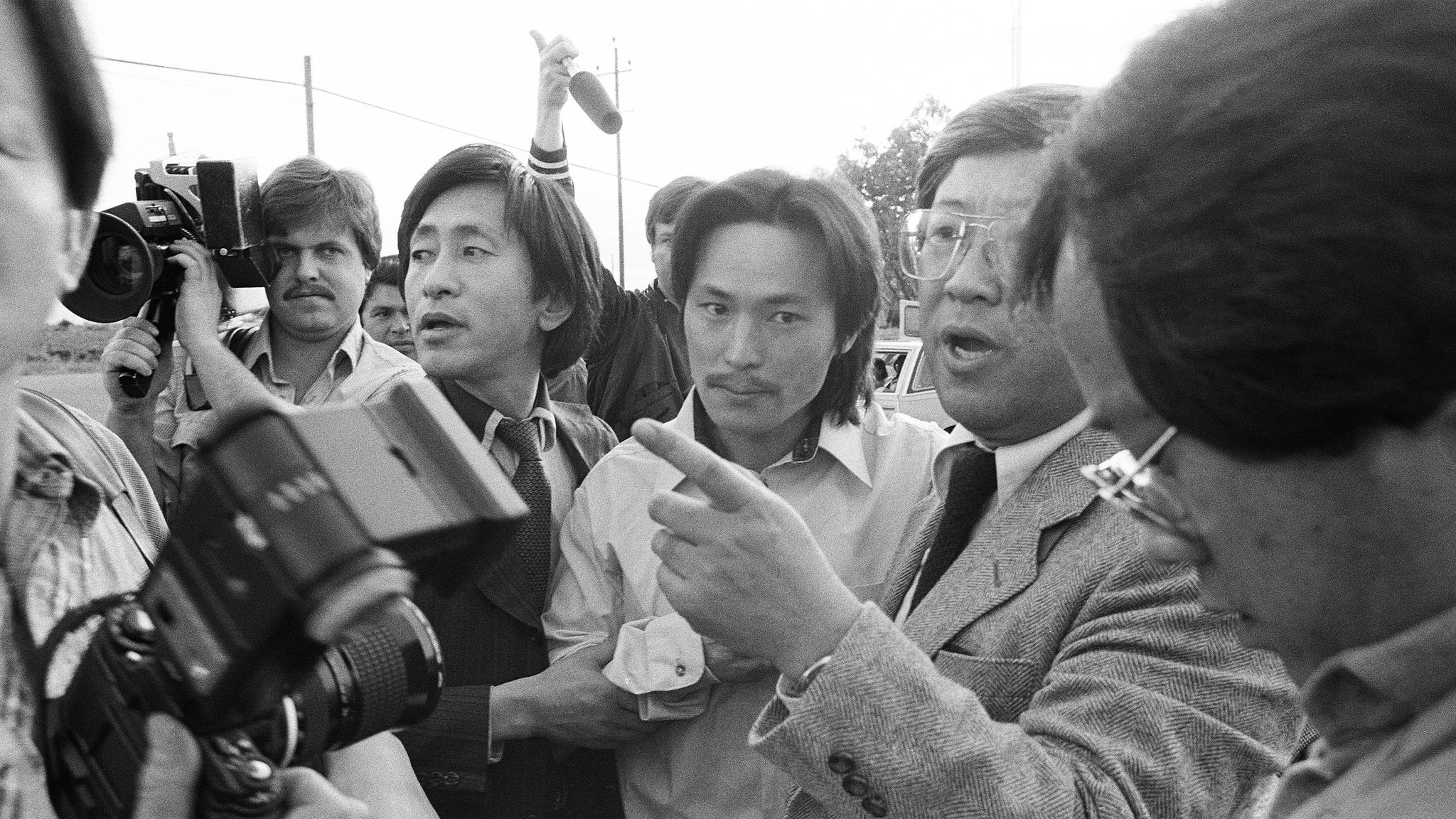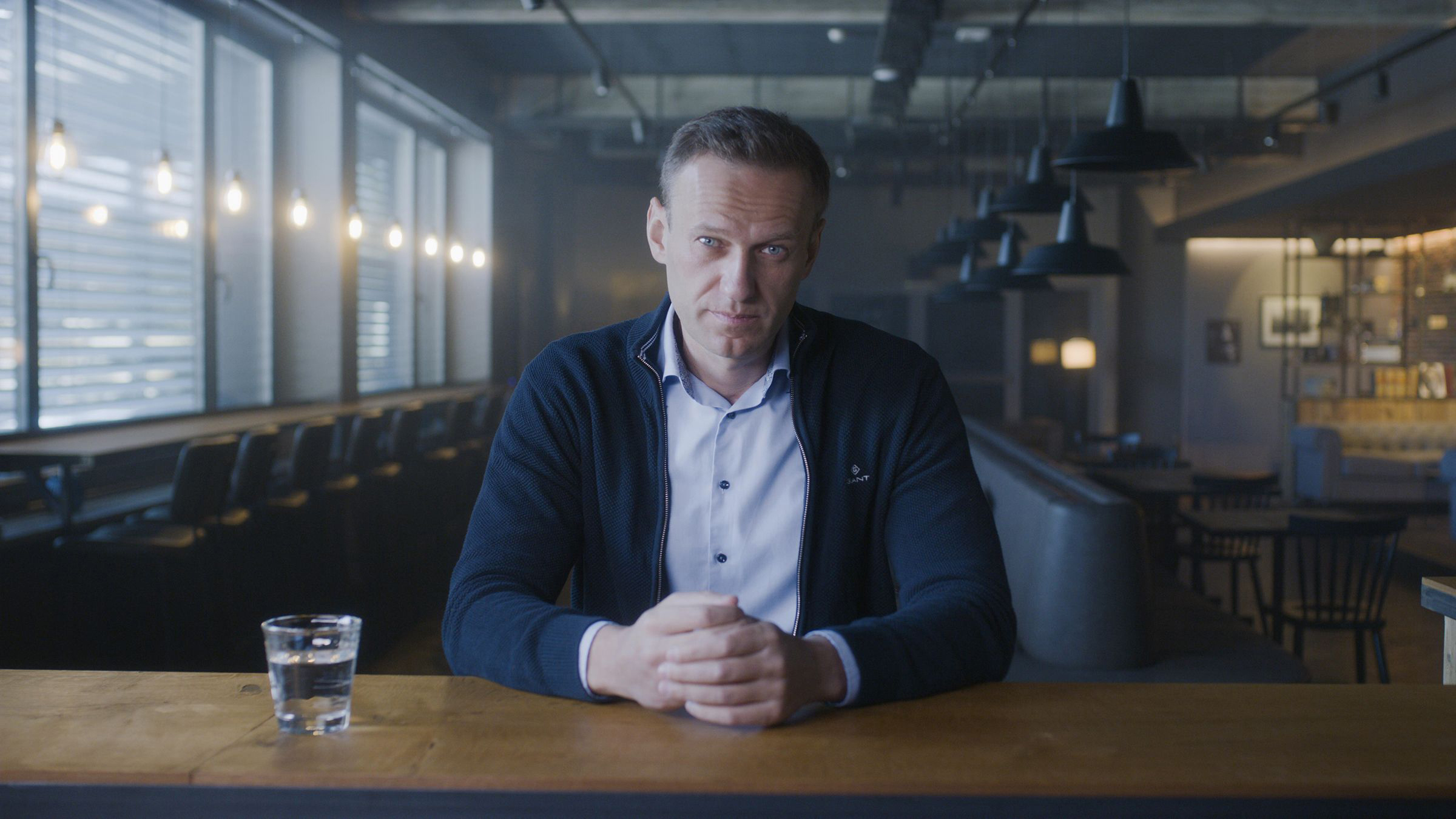Director Alon Schwarz, like most Israelis, spent time in the Army. He served as an intelligence officer whose job was to make sense of an array of disparate facts and fragments of information. He then entered the world of tech startups, making a decent living in that milieu. Schwarz then left that part of his life behind, drawn to documentary to tell the very personal story of Aida’s Secrets, which has a very strong Canadian connection. Schwarz’s latest film, Tantura, provocatively draws upon his experience of making sense of disparate facts. Tantura wades into that murky period of Israeli history where, under machinegun fire from without and within, the modern state was birthed.
Tantura speaks of a village now erased from the map. It was a coastal settlement on the road between Tel Aviv and Haifa. Tantura was home to a few thousand residents who were caught up with the events of partition. The story of what happened to the people who lived there before the razing has been debated through the decades. However, it’s rarely provided definitive answers or truly investigated charges of an alleged massacre.
For some, Shwarz’s film simply picks at scabbed over wounds. However, the power Tantura lies in getting on camera those soldiers and residents who were there to witness the events. The film provides no easy answers, even if the filmmaker’s point of view of the events is clearly articulated. Some already see the work as providing definitive truths, with an Al Jazeera headline from yesterday after the Sundance debut stating flatly that “200 Palestinians were killed by Zionist gangs” citing (but, interestingly, not hyperlinking) to Israeli newspaper Haaretz’s article about Schwarz’s discoveries outlined in the film.
POV and Schwarz spoke at length about the film, its impact, and the way that his story speaks not simply to the events of 1948 but to the ways that Israel in particular, and realistically all countries around the world, shapes its founding storylines in ways that are self-beneficial. It’s a complicated film that raises complicated questions, and it’s clear that Schwartz is well prepared not only for the response that’s already being generated, but also to have this discussion be one of healing rather than merely provocation, with the truth of what took place these decades ago finally properly accounted for.
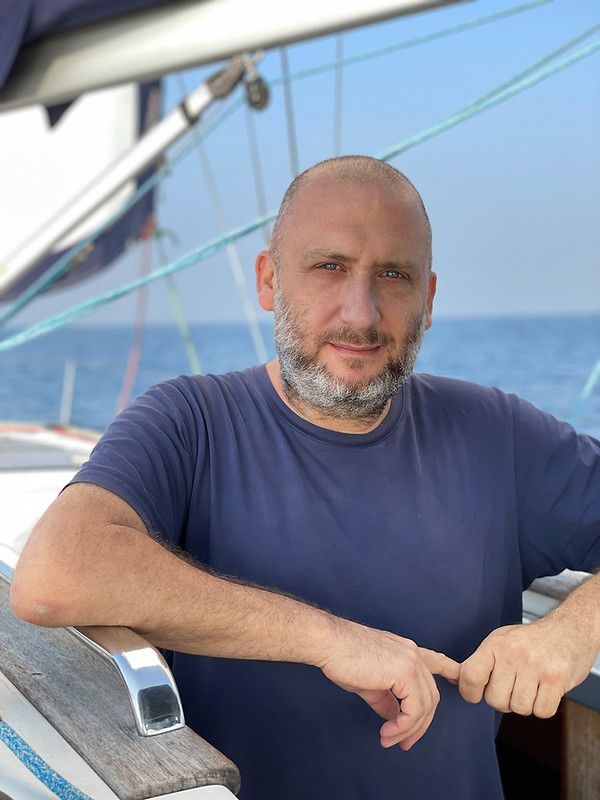
POV: Jason Gorber
AS: Alon Schwarz
The following has been edited for clarity and concision
POV: Congratulations on the film. It’s quite extraordinary and a story I hadn’t heard. How much this incident is generally known in Israel?
AS: When you talk about this story, you mean Tantura or Nakba?
POV: The Israeli response to the notion of “Nakba” is a whole other story, perhaps a future mini-series for you. No, I mean specifically, about the story of this city, Tantura, after the court case and controversy of a few decades ago.
AS: This story started obviously 73 years ago. But 23 years ago, there was a thesis by Teddy Katz. He was later challenged and there was a big scandal in the papers, as you see in the film. And then there was silence. If you go on Israeli websites today, you see wall-to-wall criticism of Teddy and his work, saying that he’s distorted everything and that’s the reality, that it’s all lies, that no massacre ever happened. Even left-wing people believe in that. I think discussing Tantura is part of the bigger taboo of not talking about certain things. People in Israel don’t believe this story. They don’t believe it and they don’t want to believe it.
POV: It’s slightly more complicated than simply silencing history because Katz, who wrote the thesis, officially declared that he was wrong and apologized for lying. Your film touches upon that, but I’m just wondering about your own connection with the story and how you navigate the search for, for lack of a better phrase, “historical truth”? This documentary tells a very messy story.
AS: Why do you think the documentary tells a messy story? The story is messy, or the documentary is messy?
POV: No, no, the documentary is extraordinary! The story is messy. There’s no simple truth here.
AS: No, there’s no simple truth here. But there’s one thing that is to me, simple logic, to me, is very obvious. There’s no smoke without fire when you hear such a story. When I heard that 100 hours of tape recordings took place, and there’s this whole big story in 1997, and then when it got published, Katz changed his mind, it looked like a good story to tell. I decided the smart thing to do, methodologically, was to not to read the thesis first, which was a little bit messy, but to take the raw data. I was in intelligence in the Israeli army, and I was a high-tech guy before I became a film director. I look at data. I love data. For me, the data here is the data of the audio tapes. It’s listening, by myself. I’m not arguing, like they love to do in Israel, in order to make the story not true about what Teddy Katz said about what they said in the tapes.
We have to remember these are 50 years past the events when these people are talking on the tapes. When I am listening to them, it’s another two decades on. But it was still important to listen by myself. In the tapes, there are many stories, and you can tell endless narratives. But, what you get is people from the side that allegedly did wrongdoings, did the war crimes, telling you that in Tantura things happened. You start to believe that it’s not their imagination. In the end, it’s very simple—it’s not very complex, it’s very simple. These are all people that 23 years ago talked about certain things, and some of them, not all of them, still talk about it today.
POV: And now you are have the benefit of filming them telling their stories, and reacting to what they said on Katz’s tapes.
AS: The extra value of putting cameras on them is that when they listen you see their reactions. For me, it’s very obvious what happened in Tantura. Although we can’t do a true crime forensic documentary on every level, on the atomic level of everything, we have a pretty clear picture of not only the events of 1948, but also the events of silencing 20 years ago, and silencing today in Israel. I was very naïve when I started this flm. I’m a left-wing guy, I’m not a right-wing guy. I’m a left-wing Israeli, but I did not know about this reality, like most of the people in Israel still don’t know.
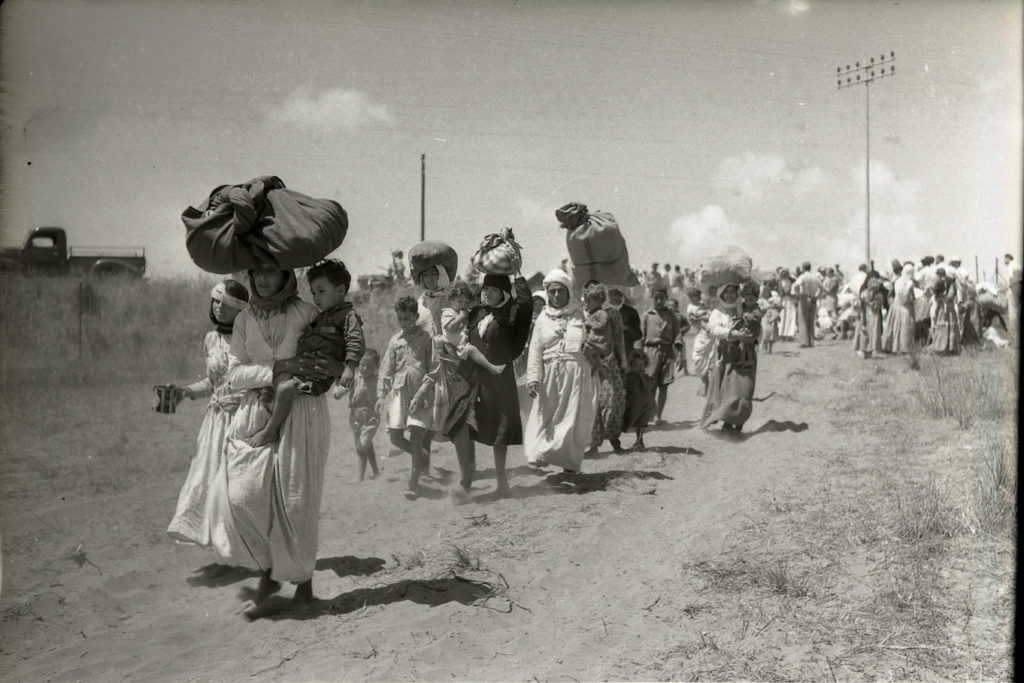
POV: I think there are two ways of looking at what happened simplistically. First, that a bunch of monsters killed a bunch of people, hands down. Some crazy Zionists persecuted and murdered people who officially deserved to live in that city, and they are war criminals, and the entire notion of the state of Israel is a lie…
AS: …No, no, no.
POV: That is one way of looking at it in a very simplistic way. Equally, there’s a way to look at this that says that, even if these things happened, bringing them up will bring shame and pain, so it is better to forget that because even talking about it removes any nuance of what was taking place at the time. We can never understand what it was like during those times for people who had already gone through so much horror. There’s an argument that even talking about it goes beyond airing dirty laundry. The very act is somehow destructive to the dream of what Israel is. There’s your polar opposites.
AS: I agree with you. And there is a third way. The first way, I don’t agree with at all, and nobody would agree with it.
POV: But people all over the world will definitively see this film through the lens that this proves the very notion of Zionism is morally corrupt from the very beginning.
AS: Yes, that’s correct.
POV: Your geopolitical neighbours will, and many people will, watch your film and believe that.
AS: Well, that’s not what I’m saying.
POV: That is correct. What do you see as the third way?
AS: It’s very hard to do what I’m doing, psychologically, I went through hell. I love my country, I believe in it, and I hope it will have a future. Please, I have almost tears in my eyes when I say it right now. But I think there’s a third way. The third way is to say we as a people that want to be number one in the world in morals: we want to be righteous people; we need to start maturing as a society and understand our grandparents did great things, but also understand our grandparents’ wrongdoings. This was all part of a complex reality of state building. We must understand the generational trauma that our Arab citizens of Israel are feeling. We’re denying their memories. We have to mature as a society and reach out our hand in peace and say we’re sorry for what we did wrong.
It’s not that we did everything wrong and they did everything right. Reality is complex. But when you kill civilians after a battle ends, it’s never the correct thing to do. In Israel, they’re still arguing if it happened. Once you acknowledge that things like this happened, in Tantura and elsewhere, you need to apologize. It doesn’t mean that we’re bringing back all of the Arabs to live in Tantura and throwing the Jews back to Europe. That’s not what it means. But we have to understand that this reality did happen. 350,000 people were thrown out by force. They didn’t go because they wanted to go. We as Israelis looked the other way, or don’t know. This is how we grow.
POV: What role then does the film play?
AS: The academics will tell you, we’ve known all this since the 1980s. Benny Morris knew this, and the news stories wrote about it, and so on. But how many people read their books? I think this film is part of a bigger process that’s happening in Israel today with writers like Adam Rav writing in Haaretz today about this, and two weeks ago about other massacres. Films like Michal Weits’s Blue Box are talking about the spirit and bringing this to wide audiences who are brave enough to listen and look. Most Israelis still don’t want to look. We don’t do this because we make money with documentaries. We do this because we have a cause. I’m not some lefty naïve person; I’m a realistic guy; I’m 51 years old.
POV: A pragmatist?
AS: Yeah, and I grew up in a certain way, a Zionist way. I’m still a Zionist, a proud Zionist. But we have to acknowledge and grow up as a society and stop what we’re doing. And we have to stop saying it didn’t happen, because it did. It’s stark reality.
POV: Were you worried that different audiences would see different things?
AS: Oh, I was constantly worried about it! It took us two-and-a-half years to edit the film, and we changed it a lot. I don’t even know how many shifts, we stopped counting them. It was so hard because we wanted nuance. The ending of the film changed in the last week. We shifted the end, not having Teddy, but the killer, the guy who admits to killing. He says, “Don’t judge us.” Every frame in the film is thought out. We know we’re going into a minefield, but there’s no easy way to tell this story. I feel good, in a moral way, of giving everybody a voice and letting these soldiers end by say “Don’t judge us.” And I’m not judging them, but I am telling a story to my own people – to the world, yes, but mainly to my own people about our history.
POV: Some people think that art can be an existential threat to the notion of the country, especially from the outside. North American Jews are far more reticent than Israelis to watch films like Tantura.
AS: American Jews feel that they need to support Israel no matter what happens, and it can’t be criticized. They have to be critical of Israel sometimes! Being a good Zionist and a good Jew doesn’t mean we say Amen to everything that Israel does, in my opinion.
POV: There is a difference between the politics of Israel and the dream of Israel.
AS: Absolutely. People have different dreams of Israel, that’s OK. I come from a very Zionist family. My great grandparents founded the first Moshav. He was the founder of that idea. I also was there when Rabin was killed. I was there when we believed in peace and we thought we were just about to have it. And I still think we can have peace! But I know today after making this film, understanding the other side, I understand what they want from us. And they want first and foremost recognition. This is not only in Israel, it’s true, I think other societies are going through this as well. We have a complex reality. We had a country that was threatened only four years after the Holocaust. It was a reality, and I understand the context and I give it in the film. But I also understand that we can’t go on pretending like it never happened or, even worse, knowing that it happened, but not telling the truth because it’s an existential threat to tell the truth. It’s not. We’re a country that has a massive army; they say we have nuclear weapons. We’re strong; we go to the army, every one of us. And we have to tell the truth.
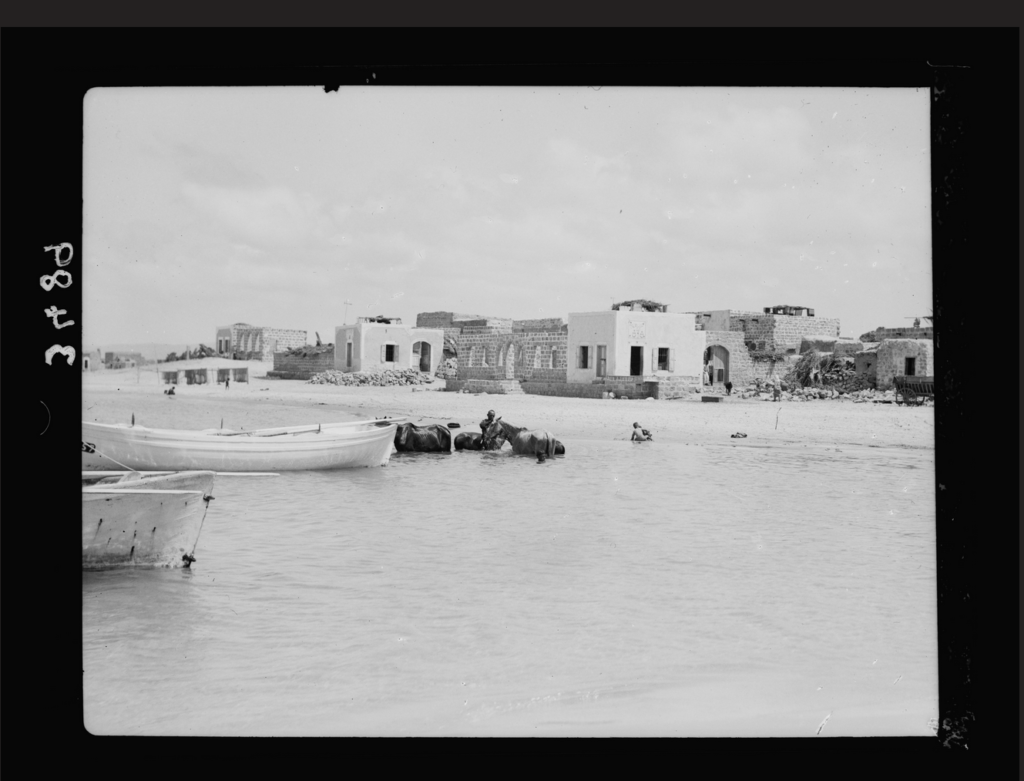
Photo credit: Eric and Edith Matson Photograph Collection. Courtesy of the Library of Congress. All rights reserved.
POV: How did the film change over those two years?
AS: First of all, I didn’t start from doing this film. When I got funded, I started doing a film about the decline of Israeli democracy. It was a three part series, and then we said “Let’s do a film, not a series.” We decided one chapter of the series was supposed to be on the NGOs in Israel, and how the government makes them look as traitors. B’Tselem, Breaking the Silence, these kind of organizations. I filmed for 53 days. One day I came home and said, “Where did this start? What happened 20 years ago? What happened 40 years ago?” So I Googled it, and I got to this Teddy Katz thing, which I vaguely remember from when I was a young kid.
I called Teddy up. I said I was making a film, and he said come over. I went and met this broken guy, with his eyes sparkling, and he wants to tell his story. When he gives me the tapes, it’s like the lottery. I said maybe he is a liar, maybe it’s all bullshit, maybe he has nothing in the tapes. When I listened, I focused on the Hebrew. It’s very important. Right away, I understood that I couldn’t go through the process that they went through in the university where they took the legal stuff and looked at where he was wrong. I read his thesis at that point and, again, it’s a little bit messy. But I listened to the raw data and we digitally enhanced it. I have digital workflows, which they never had. Not the courts, not him, and not the university.
Then we went to the old people, and it was crazy hard to find them. They’re not listed anywhere. We found them and we listened to the tapes. That’s how the movie changed in the beginning. When we finally filmed it, we first thought the story was about 1948—a forensic, true crime story and all of that. But as we got more and more into the editing, we realized massacres happened not only in Israel, not only in Tantura, but in other places in the world. What’s more interesting about is that this was silenced, that Katz was silenced. They’ll try to silence me now, and I’m sure it’s coming.
The next phase was actually much later, when we understood that the silencing is a system. It’s a job, people work at this, there are organizations here, in America, meant to silence. I did a huge amount of research on this, but we give you a little bit of a taste of that in the film about that. We leave Tantura for a while and go to the history of silencing and how you make a PR event of a transfer, which is fascinating.
POV: One of the most provocative things that happens is when the historian basically calls bullshit on testimony. Which is a very specific thing. And you touched upon it, about how the different voices will say different things after years. Inevitably, much of the story of Israel has been a different testimony about the Six Million.
AS: Exactly, so how can you say it’s not valid here?
POV: Here’s the central contradiction: on the one hand, there’s a prioritizing of witnesses, and in turn a priority of victims. On the other hand, we say witnesses and victims only saw a portion of it, so they could never have understood the whole. Out of any people in any culture and any country, this paradox is fascinating.
AS: Unbelievable. And they sit in front of me, some of these academics, and they tell me this. I’m sitting there and it’s exactly what you said, you answered the question yourself. Listen, history is not an exact science. It’s not physics. Even physics isn’t always exact. But they act as if it’s exact science. All they care about are the little bits and bites about whether Teddy quoted the tape correctly. I can tell you, none of the transcripts was 100%, not on this side, not on that side. I didn’t even get to that. I didn’t care about transcripts, I didn’t work with the transcripts. It was a decision not to do it.
Even if somebody says something, what does memory mean after 50 years? After 70 years? It means something if many people say it, if it repeats itself in two languages, and if, together with some documents, we can tell a story. Every story can be told endless ways, but I think I told it in an honest way, looking at history. That’s what I tried to do and I really believe with my whole heart that it’s what I did.
POV: He’s saying that taking witness testimony in isolation as historical fact is problematic, and I’ll even grant that, but what’s interesting is when you say you’ve done an investigation and seen the aeriel photography, his response isn’t as an historian who would look at the physical evidence. His response is to say, “It’s a long time ago, who cares?” Why are you bothering?
AS: That’s not it exactly. The analysis of these aerial photographs, these historical photographs, happened over a long time. When I was interviewing them, it was when we just started to find it and I didn’t have the interpretation of experts. I went to four different experts in Israel. Each has a certain forte in people from the military or underground radar and photographers. It happened over a course of almost a year that I was analyzing these aerial photographs. No paper has written about it, at least not yet. What I understand at the end is that we think [the thing we are looking at] is a mass grave. If you look at pictures of Europe, this is what they look like. But it looks like it was dug up again from a photo from ’49.
POV: It looks like if the cover up happened, it was already being done in 1949.
AS: Yes. I brought in all of guys from the Israeli Air Force, and while they don’t have the stereoscope, they recognized immediately this is a dug trench. Whatever was here, somebody took stuff out. I didn’t believe them. Then I brought the underground radar guy – all of this is not in the film, and it was a shitload of money. I didn’t have the budget for that, and he didn’t want to be filmed, but he’s an expert on this, and he told me, it’s dug. The radar will tell you there’s a different type of earth there, maybe different sand, but whatever is there is dug.
What you see in the film with the aerial company, they told me the same thing. Then I brought in geologists, who didn’t want to be in the film, and my cousin, who’s a pilot. They told me the same thing. They all didn’t know about each other. It’s a dug trench. It’s thirty-five metres by four metres, and about one metre deep. You can calculate how many bodies you could put there. One of the witnesses who buried them says we put them in three layers. And that matches the high number. I don’t know how many people died there. We will never know. But I did a very thorough investigation here. Obviously, I can’t prove this, I’m not allowed to dig there, and even if you dig there, I’m not sure you’ll find anything. It was dug probably before 1949.
POV: But your film is a dig.
AS: Yeah, it’s a dig.
POV: Your film is a metaphorical dig of memory. You did not physically dig this trench, you leave open the possibility you are wrong, but it’s still digging.
AS: We’ll never know how many people died there, but I do know one thing. I do know that I have some witnesses that say 150 to 200. It’s not in the movie, but one of the soldiers that says to my camera, and another guy on tape says a number above 240 every time. He gives different estimates. The commander of the unit said 20 people. Suddenly their version changed and it was 70 people, so we’ll never know.
POV: Right, but some people say that none of this happened.
AS: One thing I’m sure about, I can’t prove it, is that things occurred there that should not have occurred according to military war laws, let’s put it this way. It’s hypocritical for these historians to say only documents matter. We have documents too! Do people document their war crimes? Usually not, unless it’s a system like the Nazis had. So I don’t accept this thing by historians that it only has to be documents. I simply don’t accept it.
POV: Agreed, but you are also making hypotheticals. There are questions to be asked, and those questions have been silenced.
AS: Exactly. Watch the film. See the body language. Everybody can think what they think, but I see the nuances in their faces. I see how they move in their chairs. When somebody says, “nothing happened,” I see how he looks to the side. Body language is deeper than any transcript. All of these academics are calling me, and I tell if you want to be truthful, then look at the nuances. Listen to the voice, to the intonation and body language. It’s so much stronger than the transcript and the dry word that was partially taken from analogue tape 23 years ago. The nuances tell the story, to me.
POV: How do you expect this film to play at home, and how do you feel it will play internationally?
AS: I think some critics will love it and will say it’s the best film ever made and some people will say that it’s trash and I’m a liar. Unfortunately, that’s the truth. Can we, as a people, as a nation that I love, grow up, mature, recognize another side, and believe again in peace? We stopped believing in peace, as a people, as a country, and as a region. It’s part of a bigger lack of believing in the world, but that’s a different story. I want to get back to simple values of truth in a post-truth world. I’m a dreamer. I used to be a startup guy, dreaming of inventing things. That’s how I was educated in America.
We must get back to dreaming of peace, and for that, we need to acknowledge that there’s another side here, which we’ve hurt. They’re not our enemies, they’re our partners, and they’re fellow citizens in our country. I’m not judging that soldier who came from the Holocaust and murdered. What we need is to learn and improve the future.
Tantura premiered at the 2022 Sundance Film Festival.




